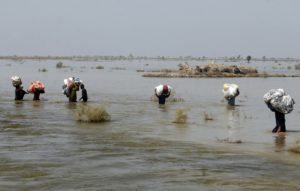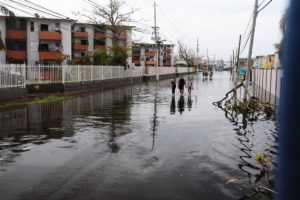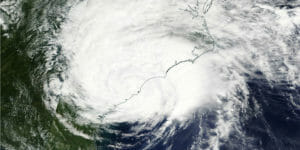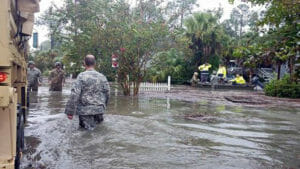Philippines: State of Calamity; Struggle for Survivors (Video)
Authorities say at least 9.1 million people across 41 provinces have been displaced, injured or otherwise affected by Typhoon Haiyan, one of the most powerful ever to hit land and experts say the deadliest natural disaster to strike the Philippines.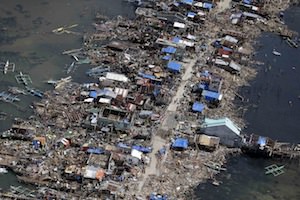
Authorities say at least 9.1 million people across 41 provinces have been displaced, injured or otherwise affected by Typhoon Haiyan, one of the most powerful ever to hit land and experts say the deadliest natural disaster to strike the Philippines.
The government has deployed hundreds of soldiers in Tacloban, the remote eastern city worst hit by the storm. Sunday night people desperate for food, clean water and medicine looted a Red Cross convoy there. The government has also declared an official state of calamity, a measure that allows for the control of basic commodities and services to “avoid overpricing and hoarding of vital products.”
The Independent reported:
International relief workers are struggling to reach the hundreds of thousands left homeless, while witnesses on the ground say a coordinated centre for the effort is still yet to be established.
[President Benigno] Aquino said: “In the coming days, be assured: help will reach you faster and faster. My appeal to you all is: remaining calm, praying, cooperating with, and assisting one another are the things that will help us to rise from this calamity.”
US Marines were dispatched this morning to Tacloban. Flying in from Manila’s Vilamor air base, they were among the first contingents of the ballooning aid programme actually able to reach those in need.
The “super typhoon” washed away entire villages and is thought to have killed as many as 10,000 people. After flying over the island of Leyte — probably the worst affected place — in a helicopter, Interior Secretary Manuel Roxas said: “From the shore and moving a kilometre inland, there are no structures standing. I don’t know how to describe what I saw. … It’s horrific.” He added: “Imagine … all the shanties, everything, destroyed. They were just like matchsticks flung inland.”
Emergency teams have yet to reach coastal villages cut off by floods and landslides, where authorities predict higher death tolls.
— Posted by Alexander Reed Kelly.
‘Democracy Now!’:
Your support matters…Independent journalism is under threat and overshadowed by heavily funded mainstream media.
You can help level the playing field. Become a member.
Your tax-deductible contribution keeps us digging beneath the headlines to give you thought-provoking, investigative reporting and analysis that unearths what's really happening- without compromise.
Give today to support our courageous, independent journalists.
